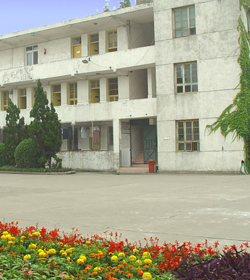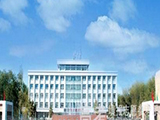2016年12月大学英语六级暑假阅读练习(三)
2016-07-08 09:53:24am
One often hears it said that travel broadens themind: if you stay in your own country the whole time, your ideas remain narrow; whereas if you travelabroad you see new customs, eat new foods, do newthings, and come back home with a broader mind.
But does this always — or even usually — happen?An acquaintance2 of mine who lives in England andhad never been outside it until last summer, decided to go over3 to France for a trip. When hereturned, I asked him how he liked it.Terrible, was his answer. I couldn’t get a nice cup of teaanywhere . 4 Thank goodness I’m back. I asked him whether he hadn’t had any good foodwhile he was there .Oh, the dinners were all right, he said.I found a little place where theymade quite good fish and chips. Not as good as ours, mind you5, but they were passable. Butthe breakfasts were terrible: no bacon or kippers. I had fried eggs and chips, but it was quite a6 business getting them to make them. They expected me to eat rolls. And when I asked formarmalade , they brought strawberry jam. And do you know, they insisted that it wasmarmalade? The trouble is they don’t know English.
I thought it useless to explain that we borrowed the word‘marmalade ’from French, and that itmeans, in that language, any kind of jam. So I said,But didn’t you eat any of the famousFrench food?What? Me?he said.Of course not! Give me good old English food every time!None of these fancy bits for me! Obviously travel had not broadened his mind.
This does not, of course, happen only to Englishmen in France: all nationalities, in all foreigncountries, can be found judging what they see, hear, taste and smell according to their ownhabits and customs. People who are better educated and who have read a lot about foreigncountries tend to be more adaptable7 and tolerant8, but this is because their minds havealready been broadened before they start travelling. In fact, it is easier to be broad-mindedabout foreign habits and customs, if one’s acquaintance with these things is limited to booksand films. The American smiles tolerantly over the absence of central heating in most Englishhomes when he is himself comfortably seated in his armchair in his centrally heated house inChicago; the English man reads about the sanitary arrangements in a certain tropical country,and the inhabitants of the latter read about London fogs, and each side manages to bedetached and broad-minded. 9 But actual physical contact with things one is unaccustomed tois much more difficult to bear philosophically.
Perhaps the ideal would be if travel could succeed in making people tolerant of the habits andcustoms of others without abandoning their own. The criterion for judging a foreigner couldbe: Does he try to be polite and considerate to others? Instead of: Is he like me?
阅读自测
Ⅰ. True or False :
1. It is often said that if you travel abroad to see many new things, your mind will bebroadened.
2. The Englishman had a happy life when he travelled to France .
3. The word‘marmalade’is originally a French word, which means any kind of jam.
4. In the view of the author, people often judge things according to their own habits andcustoms.
5. The author thinks that people who are better educated and read a lot are easily to betolerant.
6. Tea , bacon, kippers, chips are all typical English food.
【参考答案】
Ⅰ. 1. T 2. F 3 . T 4 . T 5 . T 6 . T
以上就是查字典大学网为同学们带来的“2016年12月大学英语六级暑假阅读练习(三)”内容了,希望看完能够带给大家一些力量,对同学的生活有所启示,更多内容在这里,请继续关注我们。
推荐文章
猜你喜欢
附近的人在看
推荐阅读
拓展阅读
院校推荐
猜你喜欢
办公室恋情恶果VS好处
90后求职女生吴丽春:“相信勇敢之后必有春天”
中国的社会保障改革亟须顶层设计
职场为人处世三大准则:爱岗敬业 不卑不亢 自信坦然
创业,会给职业生涯加分多少?
中国IT城市满意度排名
15个细节助你走向美好的职业生涯
中国国际形象最佳城市排名 上海居首
大学生利用过年前短短的十几天兼职
大学生如何弥补自身的求职劣势
彩虹族成职场白领新宠
高校“求职达人” 毕业即获50万年薪 做好职业规划
别把职业规划当成口头禅
2010全球城市排名中国七城市上榜 北京排名十五
新兴职业发展遇瓶颈 或"无地用武"或"有市无人"
大一小伙骑单车37天到拉萨 全程2166公里
关于主动性的三个小故事
职场白领热门电影推荐



